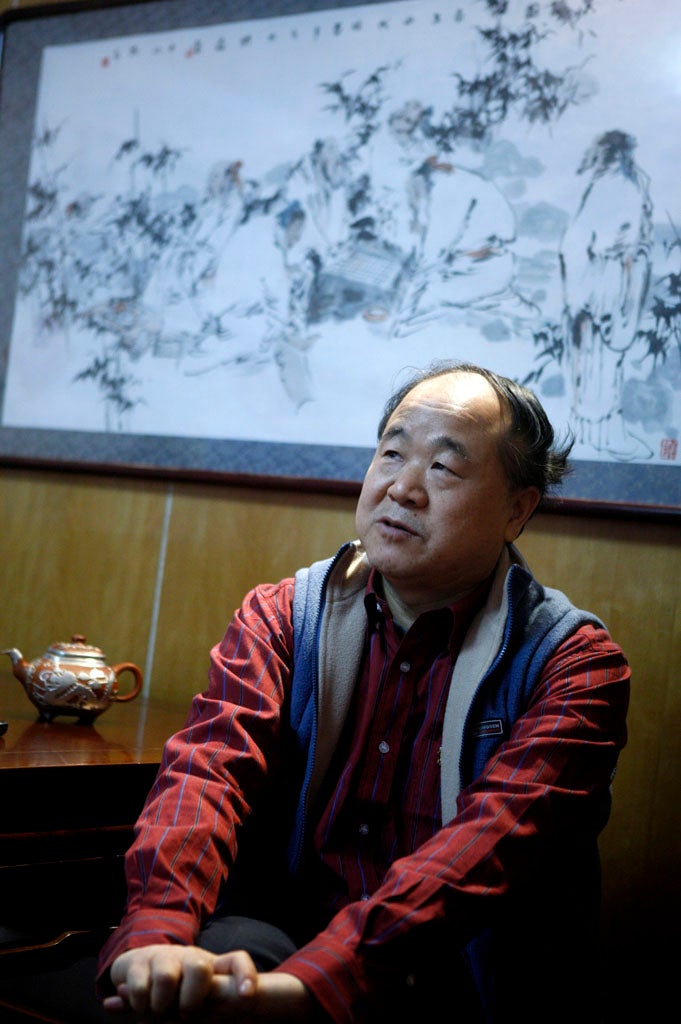Ai Weiwei brands Nobel Prize for Literature decision an 'insult to humanity' as China's Mo Yan named winner

One of the “grand old men” of Chinese literature, who has chronicled the changing landscape of the country in the 20th century, was yesterday awarded the Nobel Prize in Literature. Yet the news sparked fury from dissident artist Ai Weiwei, who called it an “insult to humanity and to literature”.
Peter Englund, permanent secretary of the Swedish Academy, announced at midday that Mo Yan was the 2012 Nobel Literature Prize winner, saying the writer “with hallucinatory realism, merges folk tales, history and the contemporary.”
Michel Hockx, professor of Chinese at the University of London’s School of Oriental and African Studies, said: “He’s one of the grand old men of Chinese literature,” adding: “He has a substantial oeuvre. He writes big novels about big issues.”
Mo Yan, was hailed in his home country. The Communist Party’s official organ, the People's Daily was ecstatic in its reaction. “Mo Yan wins the Nobel Prize for Literature! This is the first Chinese writer who has won the Nobel Prize for Literature. Chinese writers have waited too long, the Chinese people have waited too long.”
The paper ignored Gao Xingjian, who won the prize in 2000, because the author had emigrated and taken French citizenship by the time of the award, which was criticised by the Chinese Government.
Artist Ai Weiwei, however, was furious that Mo Yan had won. “Giving the award to a writer like this is an insult to humanity and to literature. It’s shameful for the committee to have made this selection which does not live up to the previous quality of literature in the award.”
The author deals with “big issues but is not a political activist,” Professor Hockx said. Mr Ai pointed to Nobel Peace Prize winner Liu Xiaobo who is in jail for subversion, before slamming Mo Yan for having “no involvement with the contemporary struggle”. He added: “You can never separate literature and struggle from today’s current political situation. China is a state with no freedom of expression.”
The dissident artist’s views were not shared by award-winning Chinese film director and novelist Xiaolu Guo, who said: “His writings are deeply rooted in the Chinese peasant soil and in the historical context.
“I am so glad that he won, because this prize will open up a much deeper understanding of what Chinese literature’s essence really is in the contemporary world - beyond all superficial discussion focused on a clichéd China and economic reports.”
Mo Yan, who was born in the Shandong province, rose to fame in the 1980s as part of a generation “who were writing novels that hadn’t been seen before,” the professor said, adding: “He is possibly the most translated living Chinese author, and has built up a strong following abroad.”
He was in the UK earlier this year to attend the London Book Fair, and was one of the star attractions. “He has considerable standing,” the professor said. The author’s real name is Guan Moye. Mo Yan is a pen name that means “do not speak”.
His most famous global work is Red Sorghum, published in Chinese in 1987, which was later made into a film. Others include The Garlic Ballads and Big Breasts & Wide Hips.
“How do you write about the history of 20 century China?” Professor Hockyx said. “His answer has always to tackle the subject on a local level. He is not overtly political, but breaks down the official narrative and shows it from the perspective of those living in a rural area.”
A spokeswoman for Methuen, which has published three of his titles, said the group was “pleased to learn that Mo Yan has received the recognition that he justly deserves”.
Last year the prize was awarded to Swedish writer Tomas Transtomer, who followed Mario Vargas Llosa in 2010. Other recent winners of the 111-year old prize have included Doris Lessing, Harold Pinter and Orhan Pamuk.
Join our commenting forum
Join thought-provoking conversations, follow other Independent readers and see their replies
Comments
Bookmark popover
Removed from bookmarks